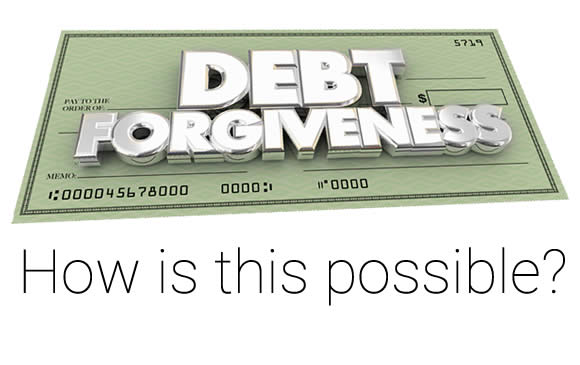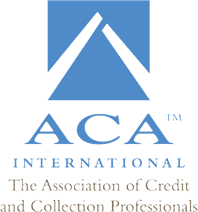Finances can be tough to manage, as we all know. Like anything else though, the more that you learn about finances, credit, and debt, the better that you become about managing your money and your debts.
Debt management can be particularly stressful. It doesn’t matter how much debt you have, whether it be a few hundred dollars or several thousand dollars if you don’t have the right strategies in place to manage your debt it can catch up with you quickly. Before you know it, you can be drowning in debt and credit card fees with apparently no way out.
Whether that debt is a loan that you got from a bank for kickstarting your own business, or maybe you took out a loan to pay for part of (or all of) your college education, you need to know how to manage your finances and your debts.
The good news and the bad news about debt is, in particular circumstances, debts can be forgiven or discharged. Today, we are going to describe some particular circumstances in which a debtor’s debts can be forgiven, what debt discharge is, and what happens after someone’s debt is discharged.

What is Debt Discharge or Debt Forgiveness?
So what is debt discharge and how does it work exactly? Don’t you always have to pay off the debts that you owe?
In all honesty no, and here is one of the special circumstances where you do not have to pay off the sum of your debts. When a debtor file for bankruptcy, they may file a form with the IRS known as 1099-C. That form indicates the amount of debt that is being forgiven.
In the instance that a debtor reaches bankruptcy and 1099-C form is filed, the debtor may be responsible for paying off only the taxes on the debt that they owe. The only circumstance in which this is going to be different is if the debt is paid off as a bequest or a gift to the debtor. After filling out form 1099-C, the borrower must report that money as income on their 1040 which is filed with the IRS.
In other words, your debt can either be forgiven in the process of filing for bankruptcy so that the debtor virtually only has to pay the taxes on the money that they lost, which is a significant drop in the money that the debtor can owe to the provider or creditor.
The Legality of Debt Discharge
So how can all of this be legal?
Isn’t it a little wild to think that a company, person, or debtor can just file for bankruptcy and avoid paying all of their debts?
Keep in mind that a debt discharge does not work for all kinds of debt. It is designed for specific situations, 19 different types of debt are exempt from being discharged. The paperwork that is filed for discharging debts prohibits any creditors from collecting on the debts that they are owed.
Keep in mind that there are circumstances in which creditors can hold liens on property to ascertain the payment of debts that have not been discharged. Which means that the credits can take back the property that is theirs or is owed to them, that is not protected by the debt discharge. The creditor may have the right to enforce the liens to recover their property at any time.
When Does a Discharge Typically Happen?
The time of the discharge can vary depending on the type of debt and the arrangement between the debtor and the creditor. This also depends on which chapter the bankruptcy is filed. Usually, the courts will grant the discharge of the debt after the debtor has completed any kind of payments that they have under their current payment plan.
That is where the Reaffirmation comes into play.
What is a Reaffirmation?
Depending on the circumstances, a debtor can set up a payment plan with the creditor and can be used to pay off some of or all of the debt that is owed; this is also known as a reaffirmation. A reaffirmation is a specific plan that debtors and creditors have in place that the debtor abides by to pay off some of or all of their debts.
Reaffirmations can only be made on an entirely voluntary basis by the debtor. The only problem with reaffirmations is that they do not legally obligate the debtor to pay off their debts. It is only a symbol of good faith or good will that the debtor has with the creditor. It doesn’t give creditors or lenders any legal leverage in enforcing the debtors to pay off the money that they owe.
Overview
Now you have a brief overview of exactly what debt discharge is and how it works. Always look into any specific circumstances that may enable or prohibit the discharge of debts.

